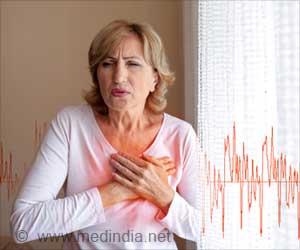Fractional CO2 laser therapy may offer help in overcoming postmenopausal symptoms in women who survive breast cancer treatment.

‘Fractional CO2 laser therapy may offer help in overcoming postmenopausal symptoms in women who survive breast cancer treatment. This provides valuable insights for healthcare providers who treat these postmenopausal women, especially those who are survivors of breast cancer.’





Menopause is defined as the natural biological state of permanent cessation of menstrual cycles (periods) in women between the ages of 40 and 55. It is caused by reduced levels of a female hormone – estrogen that is produced by ovaries (female reproductive organ). Reduction in female hormone, in turn, causes genitourinary changes that affect the vaginal elasticity, tissue integrity, pH levels, and lubrication. It can lead to troublesome vaginal and urinary symptoms that are collectively referred to as the genitourinary syndrome of menopause (GSM) – an underdiagnosed condition that hampers a woman's well-being and sexual function.
GSM is seen to be worse among the survivors of breast cancer due to the effects of cancer treatment like chemotherapy and/or endocrine therapy. This raises concerns about the use of even low-dose vaginal hormone therapies in postmenopausal women after breast cancer.
Fractional CO2 Laser Therapy in genitourinary syndrome of menopause (GSM)
The present study defines the role of a safe and effective nonhormonal treatment approach for GSM called fractional CO2 laser therapy that remodels vulvar and vaginal tissues. It was found that the therapy offered reduced sexual function problems at the 4-week follow-up visit.
Significant improvements were noted in the women’s sexual drive – desire, arousal, lubrication, orgasm, satisfaction, level of sexual activity, and pain. These sexual function scores were found to be lower at 1 year follow up as compared to that at 4 weeks, indicating that women continued to experience sexual problems.
However, these changes continued to improve drastically when compared with baseline. The team plans to conduct the further follow-up again in 2 years and also a larger-scale study to better identify the long-term effectiveness of laser therapy as a treatment of GSM and associated sexual problems.
"This study highlights the issue of sexual dysfunction affecting most survivors of breast cancer and the potential role for CO2 laser therapy in the treatment of GSM and related sexual problems. Additional study is needed to better understand the long-term safety and efficacy of this therapy," says Dr. Stephanie Faubion, NAMS medical director and one of the authors of the study.
The study thus provides valuable insights for healthcare providers who treat these postmenopausal women who are survivors of breast cancer.
Takeaway facts on menopause:
- Physical activity and nutrition may play a role in the timing of menopause for all women.
- Common symptoms like hot flashes, night sweats, depression, and sleep disturbances may serve as contributing risk factors to cardiovascular diseases, especially in women who enter menopause at an earlier age
- Women who drink little to moderate amounts of alcohol may have a later onset of menopause, and those who smoke cigarettes are likely to start menopause about a year earlier than non-smokers.
- Data indicates that only 7.2% of women in menopause meet physical activity guidelines, and fewer than 20% of those women consistently maintain a healthy diet.
Source-Medindia















